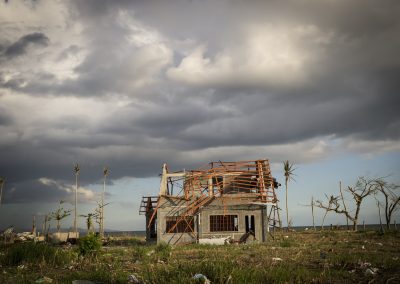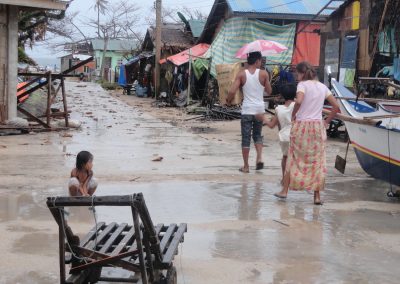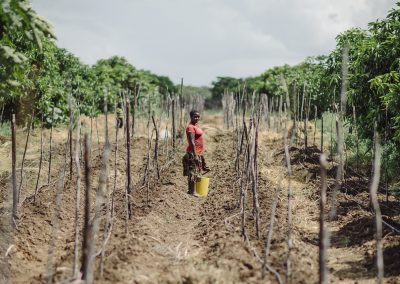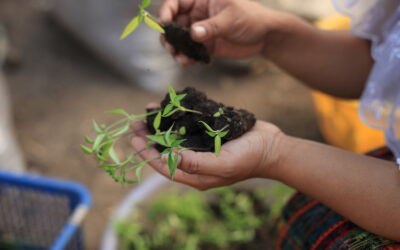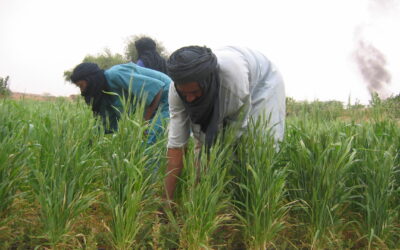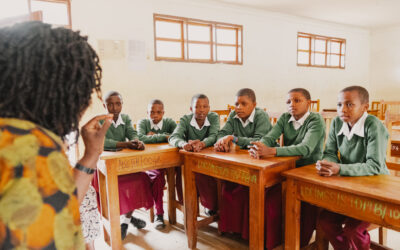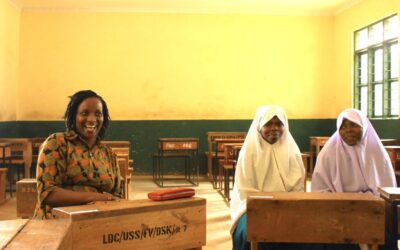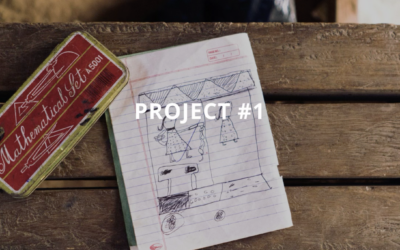5 Ways Climate Change Affects People Living in Poverty
Climate change is currently at the forefront of many political and environmental debates in the West, but for many poorer regions, particularly in Africa and South Asia, the effects of climate change are a daily reality.
Although the earth’s climate has been changing since its formation, temperatures have been rising rapidly since the industrial revolution. By burning fossil fuels, humans increase emissions (greenhouse gasses that are trapped in earth’s atmosphere) like carbon dioxide and methane. These emissions trap energy in the atmosphere and increase the temperature of the earth. Temperatures have risen about 1.4 degrees Fahrenheit in the last century.
Climate change affects regions across the globe, however, people living in poverty are more affected despite the fact that the 50 least developed countries in the world contribute only 1 percent of greenhouse gas emissions. Climate change can bring about disastrous weather events, of which 99 percent of total fatalities and 90 percent of all economic losses occur in less developed countries.
Because of their already vulnerable state, poor communities are particularly at risk of feeling the effects of climate change. Here are five ways climate change is impacting the poor.
1. Natural disasters sink poor communities further into poverty
Studies suggest that natural disasters are on the rise, as evidenced by the fact that extreme weather events between 2000 and 2009 increased three-fold over the years between 1980 and 1989.
Floods, tsunamis, droughts and other natural disasters can destroy communities with already fragile infrastructure. They often lack safe housing, live in overcrowded cities or very rural villages, and have little access to health and other services. As a result, communities can suffer widespread disease, shortages in food, water and basic necessities. For example, the Philippines experienced a devastating Typhoon in 2013 that affected fourteen million people. Many communities hit by the Typhoon were already burdened by poor infrastructure, and didn’t have the capacity to deal with such a catastrophic event, pushing families deeper into poverty.
Regions experiencing poverty are often unable to recover from natural disasters without massive financial and logistical support. According to a report by Oxfam in 2009, when a disaster strikes a high-income country 23 people die on average, while 1,052 die on average in the least-developed countries.
2. Greater health risks
Human activities like driving cars and producing coal introduce carbon dioxide and other toxic gases that change the normal composition of the air we breathe. This reduction in air quality reduces the amount of oxygenation in the respiratory system, affecting the brain and the heart, which can lead to cardiovascular and respiratory diseases. The vast majority of people at risk are in urban areas in low and middle income countries. Children in less developed countries experience the greatest health risks.
Another health-related impact of climate change is access to clean water. Shrinking sources of freshwater, droughts, changes to the water cycle, and few resources for purifying water, all cause less access to clean water and sanitation. This impacts health, especially for children, by increasing instances of waterborne diseases, malnutrition, and impaired developmental growth.
3. Flooding and coastal erosion
Coastal flooding is becoming more prevalent because of rising sea levels. Over half of the world’s population is located within about 40 miles of the sea. When sea levels rise, coastal erosion and increased flooding occurs, forcing people to move and impacting economies dependent on climate-sensitive resources, such as agriculture.
Flooding can also contaminate water sources, increasing the transmission of water-borne diseases, such as Typhoid and Cholera. Instances of Malaria can increase with flooding because standing water acts as breeding grounds for mosquitos.
4. Food security
Changing temperatures and rain patterns, particularly droughts, have detrimental effects on farmers and can cause food insecurity. Unfavorable weather can lower crop yields and decimate livestock. This means that income goes down for farmers and their families, sending people further into poverty. It can also cause massive food shortages, increasing food prices, and even lead to famine.
5. Forced migration
In the aftermath of natural disasters, droughts, famine, and other climate change issues, the poor are often faced with the tough choice of either migrating to places with better living conditions, or staying in their home and risking further uncertainty and loss.
Somalia, for example, suffered a famine in the 1980s. The famine led to conflicts over resources, which sent it into civil war in 1991. Amid these turbulent times, droughts also became more frequent amounting to the deaths of 250,000 people and a mass migration of almost a million from Somalia to nearby countries in 2011.
Addressing the effects of climate change on the poor
One Day’s Wages works to address the effects of climate change on the poor through projects and partnerships. Over the past 11 years, we’ve noticed a recurring theme in 22+ projects we’ve already funded: climate impacts people, and people impact the climate. In 2020, we trained coffee farmers in Guatemala, with our partner Pueblo a Pueblo, to become beekeepers after a fungus called coffee leaf rust decimated yields across the coffee-growing highlands, due to warmer climate. In Senegal, unpredictable rainfall patterns brought about by climate change have led to decreased access to water and limited agricultural production, so with our partner CREATE!, we’ve installed solar pumps at wells making clean water available 2,500 people year round.
The innovative ways that people and organizations are addressing the effects of climate change on the poor is encouraging, but these projects alone are not enough.
According to NASA, 2020 tied with 2016 as the hottest years globally on record. If current trends continue, the effects of climate change could push an additional 100 million individuals into poverty by 2030. To combat these global effects, it’s going to take all of us. Real change for the most vulnerable will only come with global participation: country-to-country, city-to-city, person-to-person. At One Day’s Wages, our goal is to be a part of the solution by taking small steps to make an impact on poor communities.
You can contribute to One Day’s Wages’ work to combat the effects of climate change on the poor by giving to our Climate Impact fund, or by starting a fundraiser.
Photos courtesy of World Relief, Medical Teams International, and Eden.
More stories of impact
Climate & Poverty: How Do We Respond?
The mission of One Day’s Wages is to alleviate extreme poverty. While we can truly celebrate all the progress that has been made over the years, there is a looming threat to that progress: climate change. The World Bank estimates that another 100 million people could...
It’s Time We Rethink Orphan Care
Orphanages are often serving as a stopgap for families who are struggling in poverty. In Uganda, Harriet lives with her two daughters but struggles to provide for them. With no choice but to leave her abusive husband, Harriet did not have the means to provide food,...
Global Hunger: Toward an Integrated Response
The world has made a lot of progress toward reducing global hunger over the last century. Still, around 735 million people experienced hunger in 2022, and the numbers grew over the last few years due to conflict, climate change and COVID (FAO 2023). To work toward...
Tanzania Trip Reflection
Hello everyone! My name is Micah and I am the Operations and Projects Coordinator here at One Day's Wages. After getting the chance to go on a partner visit with my colleague Daphne, One Day's Wages' Grants Director, to Tanzania, I wanted to share my highlights and...
Investing in Education: An Interview with Theopista Seuya
Theopista Seuya is the Asante Africa Foundation Country Director for Tanzania. She holds a Master’s Degree in Education Policy and International Development from the University of Bristol, and previously served as a teacher, head of school, and university lecturer. ...
Celebrating 300 Grants!
One Day’s Wages began in 2009 with one small grant: $5,000 to help 200 displaced Burmese students attend school. This August, we reached the significant milestone of awarding our 300th grant! This most recent grant will build the capacity of 225 midwives to...
One Day's Wages is a grassroots movement of people, stories, and actions to alleviate extreme global poverty
©2022 One Day's Wages is a registered 501(c)(3) organization | Tax ID #26-2566653 | Privacy policy | Terms of use
P.O. BOX 17575 Seattle, WA 98127 | Contact us

